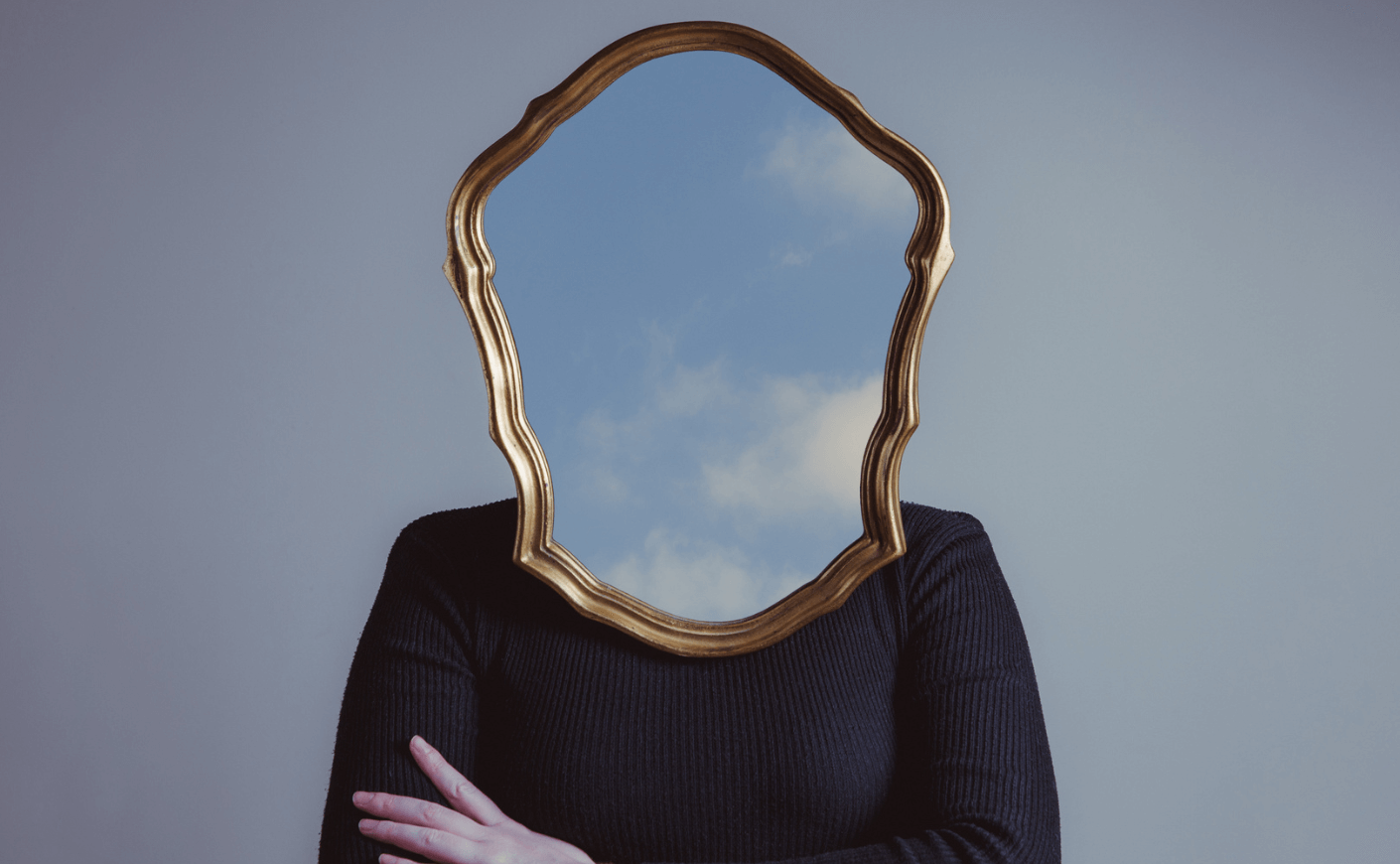Today, we’re going to try an exercise that can help you feel more beautiful as you age. Yes, I said today, to those of you who’ve already thought you might want to try this someday. When I was a beauty editor at a major women's magazine, we tried to get readers to sign a pledge promising that they’d be more mindful of their proclivity to criticize their appearance and to stop it. I think we even offered a certificate. Sadly, it wasn’t our most successful beauty initiative. Why? Because it’s hard.
But we can do it together.
From the time we start recognizing ourselves in our reflection, we (females, mostly) are taught to objectify what we see — in other words, to treat our face (and body) as an object to be evaluated and adorned. This is called the theory of objectification. So instead of actually seeing ourselves the same way we see people who aren’t us, we only see what we think others see. If that’s not the opposite of a good idea, I don’t know what is. And because what’s promoted as attractive or beautiful in our mainstream culture is still limited — overwhelmingly Caucasian-featured even when skin tone is dark, and very youth-oriented — we might find it increasingly difficult to avoid being critical about what we see in the mirror.
It’s what you project onto your reflection that determines how you evaluate it. For example, have you noticed that you are, like me, generally fine with how you look when you feel accomplished and respected, but worried about looking raggedy when you feel insecure?
If you can unlearn what you have learned, if you can look at yourself without objectifying, your face becomes just another face — with small blue eyes or large brown ones, a ski-jump nose or a long narrow one — that no one is judging. And when you can look into your own eyes long enough to allow emotions to rise up and to stay present with them, you'll have the same response to yourself as you would when looking into a friend’s eyes while she confesses her most intimate feelings. If you’re the kind of friend I think you are, what you’d be doing is called deep listening. It’s one of the kindest things you can do for another person. Only today you’re doing it for yourself. It’s about time.
Now for the fun. Mirror gazing (or mirror meditation) encourages you to remove the other, the inner critic who’s with you whenever you look in the glass. Once you get past the initial self-consciousness, skepticism, and reluctance, I think you’ll find this small exercise to be a life-changing experience.
Here’s what you’re going to do (I’ve adapted this from Healthline.com):
1. Lock yourself in the bathroom. Or find a quiet spot with a mirror where you can easily see your eyes. (Don’t use a magnifying mirror; you’ll want to tweeze your eyebrows.)
2. Set a timer on your phone for five minutes.
3. Look directly into your own eyes. You’re going to find that you’ll switch looking from eye to eye, and you may want to move closer or further from the mirror to be comfortable.
4. Track your thoughts and feelings. The first time I did this, my thoughts were something like, “You’re an idiot, this is going nowhere, etc.” But practice this exercise consistently and that will change. When I did it, tears came up right away: pent-up grief, I think.
Did you try it? Congratulations! You just took your first step toward seeing yourself with loving awareness. As with any exercise, you’re unlikely to detect results right away. You have to be disciplined. Do it when you get out of the shower or before bed. But do it consistently.
Tara Well, PhD, associate professor of psychology at Barnard College in New York City (find out more about her work here), studies the effects of mirror meditation. She’s found that 10 minutes a day can increase self-compassion and self-awareness and, not incidentally, increase satisfaction with appearance. Translation: You, too, can learn to love your face.
Reprinted with permission from the weekly Substack newsletter How Not to F*ck Up Your Face. Val Monroe spent 16 years as the beauty director at O, The Oprah Magazine and has been an editor at Ms., Redbook, Self, and Parenting magazines, among others, a contributing writer at Parents, Entertainment Weekly, The Cut at New York Magazine, and has written hundreds of articles for national publications; she’s now a contributor at Allure Magazine.









